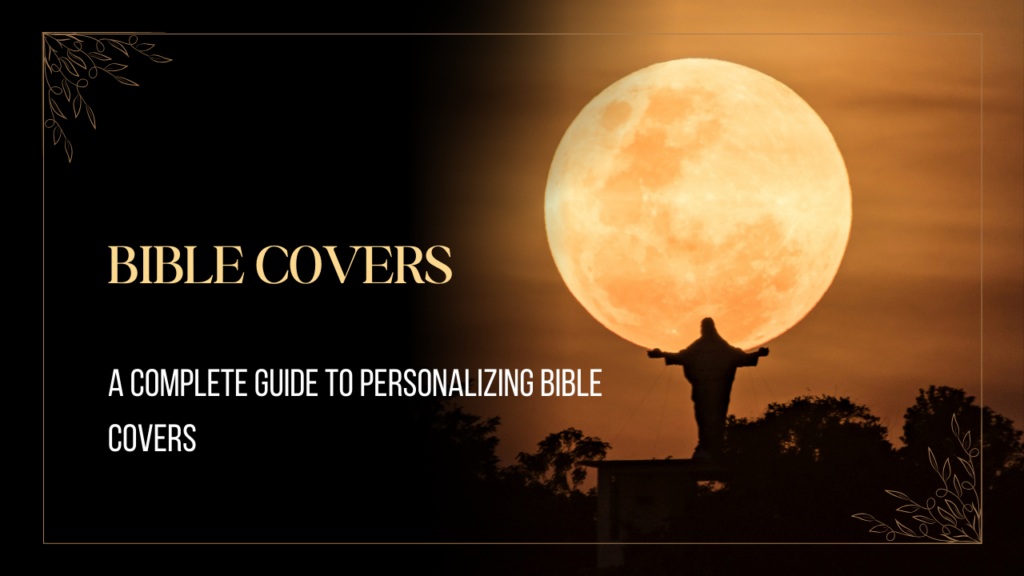How Do Baha’i Interpret the Bible?
What Baha’i Study in the Bible: Baha’i approach the Bible with deep respect and reverence, recognizing it as one of the foundational scriptures of humanity. However, their interpretation of the Bible differs from traditional Christian views. Baha’i believe that the Bible contains divine truths, but these truths must be understood in the context of contemporary spiritual teachings and the ongoing revelation of God.
Do Baha’i Study the Bible Alongside Their Own Scriptures?
Yes, Baha’i study the Bible alongside their own scriptures. The Baha’i Faith teaches that all major world religions, including Christianity, are part of God’s plan for humanity. Baha’i see the Bible as a vital source of spiritual wisdom, and they read it in conjunction with the Baha’i scriptures, such as the writings of Baha’u’llah, to gain a deeper understanding of God’s message.
What Does the Baha’i Faith Say About the Bible?
The Baha’i Faith holds the Bible in high regard as a sacred text. Baha’i believe that the Bible is a repository of divine teachings, but they also believe that its meanings were partially veiled until the coming of Baha’u’llah, the founder of the Baha’i Faith. They believe Baha’u’llah’s teachings reveal the full, unifying message of God intended for the modern age, which includes a deeper understanding of biblical prophecy.
Baha’i Teachings and the Bible
Baha’i teachings emphasize the unity of all religious teachings, including those in the Bible. The Bahá’í Faith teaches that the core message of the Bible—love, compassion, justice, and the oneness of humanity—aligns with the teachings of all previous prophets, including Jesus Christ. Baha’i see Jesus as one of God’s great messengers, but they believe that his teachings must be interpreted in the light of current world realities.
Do Baha’i Believe in the Bible?
Baha’i respect the Bible as one of the major scriptures of the world and believe it contains divine guidance. However, they do not adhere to a literal interpretation of the Bible. Instead, they seek to understand its spiritual truths in a way that is relevant for today’s world, recognizing that many of its teachings are symbolic or have layers of deeper meaning that were hidden for later generations.
Bahá’í Perspective on Biblical Teachings
Baha’i view the teachings of the Bible as part of a larger, progressive spiritual revelation. While they honor the Bible’s significance, they believe that the teachings of later prophets—such as Muhammad, Buddha, and Baha’u’llah—are also necessary for the spiritual advancement of humanity. Each prophet brought teachings suited to the needs of their time, and Baha’i believe that the Bible’s message is part of a continuous unfolding of divine knowledge.
How Do Baha’i Reconcile the Bible with Their Faith?
Baha’i reconcile the Bible with their faith by understanding it as one part of a larger, unfolding divine revelation. They do not see contradictions between the Bible and Baha’i teachings but instead look for common spiritual principles that transcend religious boundaries. They believe that all scriptures point to the same ultimate truths, which include the unity of God, humanity, and religion.
Baha’i View of Bible Prophecy
Baha’i view Bible prophecy as symbolic and often related to the coming of new messengers of God. They believe that many prophecies in the Bible, particularly those in the Old Testament and Revelation, refer to the advent of Baha’u’llah and the fulfillment of God’s promise for the unification of humanity. For Baha’i, these prophecies represent the spiritual transformation of the world that is ongoing today.
What Parts of the Bible Do Baha’i Study?
Baha’i study all parts of the Bible, but they often focus on passages that emphasize the spiritual unity of humankind, the nature of God, and the importance of justice and compassion. Baha’i teachings emphasize the universal principles found in the Bible, particularly the sayings of Jesus Christ, such as “love your neighbor as yourself” and the importance of forgiveness and service to others.
How Do Baha’i Use the Bible in Their Religious Practice?
In their religious practice, Baha’i incorporate passages from the Bible into daily prayers, meditation, and community worship. While they primarily use the prayers and writings of Baha’u’llah, they also draw inspiration from the Bible. Baha’i are encouraged to reflect on the Bible’s teachings in the context of their daily lives and seek to embody its ethical and spiritual principles.
The Role of the Bible in Bahá’í Spiritual Teachings
The Bible plays a crucial role in Baha’i spiritual teachings, serving as a foundation for understanding divine guidance. Baha’i believe that the Bible contains timeless spiritual truths that are relevant to the modern world. Through the study of the Bible, Baha’i seek to deepen their understanding of God’s will and apply its teachings to create a more just and compassionate society.
What Baha’i Believe About the Bible’s Message
Baha’i believe that the Bible’s core message is one of love, unity, and peace. They emphasize the need to look beyond the literal meanings of the scriptures and to understand their spiritual and metaphorical messages. Baha’i believe that the Bible, along with other holy scriptures, points to the oneness of all humanity and the importance of working together for the common good.
Differences Between Baha’i Beliefs and the Bible
While Baha’i hold the Bible in high regard, there are some differences between their beliefs and traditional Christian interpretations of the Bible. For example, Baha’i do not believe in the literal Second Coming of Christ but instead see the fulfillment of biblical prophecy in the advent of Baha’u’llah. Additionally, Baha’i believe in the unity of all religions, while many Christians view Christianity as the final and exclusive path to salvation.
Do Baha’i Follow Christian Teachings from the Bible?
Baha’i respect Christian teachings from the Bible, especially the teachings of Jesus, which align closely with Baha’i principles of love, service, and justice. However, Baha’i do not view the Bible as the only source of spiritual truth. They believe that all religious teachings, including those of Islam, Judaism, and Buddhism, have a common foundation in the divine plan for humanity.
Bible References in Baha’i Scripture
Baha’i scripture often references the Bible, and Baha’u’llah’s writings include many allusions to biblical verses. Baha’i interpret these references as part of the continuous and unfolding revelation from God. The Bible’s influence can be seen throughout Baha’i teachings, particularly in its emphasis on justice, unity, and peace.
Baha’i Study of Bible Verses and Teachings
Baha’i study Bible verses and teachings to deepen their spiritual understanding and strengthen their connection with God. They view the Bible as one of many sacred texts that provide guidance for living a life of service and compassion. Baha’i teachings encourage individuals to reflect on the teachings of the Bible in the light of current global challenges, promoting a message of hope and unity.
How Baha’i View Jesus and the Bible
Baha’i view Jesus Christ as a Manifestation of God, a divine teacher who brought a message of love, forgiveness, and salvation. They honor the Bible’s portrayal of Jesus and believe that his teachings, as recorded in the scriptures, are timeless and relevant. However, Baha’i also believe that Jesus’ role is part of a greater unfolding revelation that continues with the teachings of Baha’u’llah.
Baha’i Approach to Biblical History and Prophecy
Baha’i view biblical history and prophecy through the lens of spiritual symbolism and progressive revelation. They believe that the events and prophecies recorded in the Bible, particularly those in the Old Testament and the Book of Revelation, point to the coming of new messengers of God, including Baha’u’llah, who is seen as the fulfillment of biblical prophecy.

